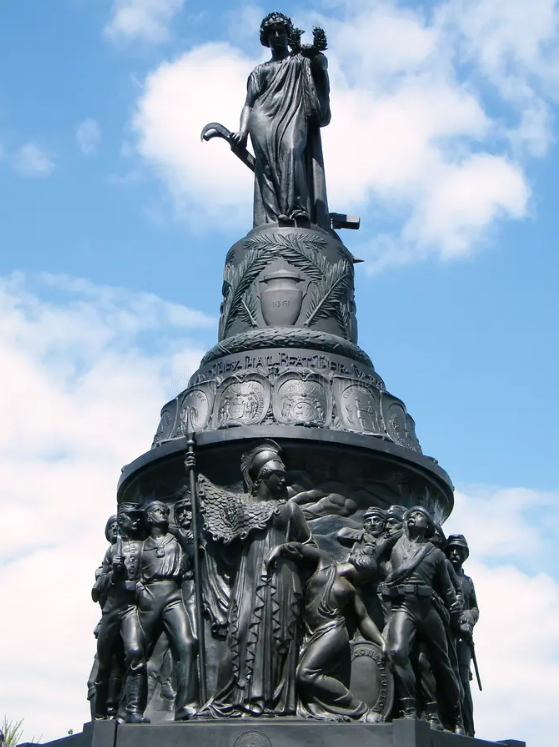Rewriting History to Absurd Levels
The inclination to rewrite history has resulted in the questionable, and to history buffs offensive, removal of names and monuments of important figures in our history. Men considered patriots in their times are now branded traitors, and as such are being expelled from history. The lengths to which this movement has taken are illustrated by a recent essay by James Webb, decorated Vietnam Marine and former Secretary of the Navy. Webb writes in the Wall Street Journal of the proposal to remove the monument to Confederate dead at Arlington National Cemetery, which falls under a provision tacked on to a 2121 defense bill that authorized all the statue removals and military base name changes we have seen recently. He points out that this is no ordinary monument, erected by Southerners to keep alive the memory of their state heroes and, to critics, preserve the spirit of rebellion.

The Confederate memorial is an impressive sculpture, but some of the figures today are perceived as racist.
Quite to the contrary, this memorial was originally proposed by a U.S. president to bring the states together after the bitterness and failed reconstruction following the Civil War. President William McKinley picked both southern and northern commanders to lead our troops in Cuba in the Spanish-American war in 1898. These were men who had fought against each other in the Civil War, and McKinley wanted to take advantage of the new unity by expanding it to honor war dead from the South in a Confederate memorial at Arlington National Cemetery.
McKinley had been in the war himself with a regiment from Ohio, and like Abraham Lincoln, he bore no animosity toward the average southern fighting man in that terrible conflict. They were simply fighting for their homeland. It is often forgotten that prior to the Civil War, there was an ongoing debate about state vs. federal government primacy. Patriotism could apply to one’s state as well as a national government.
McKinley was assassinated before the memorial actually appeared more than a decade later, and he might not have been thrilled by some elements on it which did little to produce the harmony he envisioned. The principal objection to the memorial is that several figures on it depict blacks as docilely serving their white masters, preserving the concept of “the lost cause.”
A website for the cemetery puts it well: “The elaborately designed monument offers a nostalgic, mythologized vision of the Confederacy, including highly sanitized depictions of slavery.” That is not quite what President McKinley wanted, although he probably was not thinking of slavery, but rather curing the bitterness which still existed between the states.
It is true that the “lost cause” concept was still current at the time, and it still is if you consider a film such as “Gone With The Wind” which depicts blacks in a contented subservient role. But should that classic film be banned too? The fact is that it is part of history.
James Webb was raised in a military family and writes: “The larger and ultimate question reaches further into America’s atrophied understanding of the Civil War itself. What was it that Union Army veteran McKinley understood about the Confederate soldiers who opposed his infantry units on the battlefield that eludes today’s monument smashers and ad hominem destroyers of historical reputations?”
The rationale for historic revisionists, largely left-wingers, is that the Civil War was a black mark on American history, and those who started it should not be honored or even remembered. In effect, change history. By that thinking, why do we still teach about slavery, the economic/political cause of that war? It is also a black mark on our record, and should we not simply pretend it never existed? Right-wingers arise.
That has already happened in Florida where Governor Ron DeSantis wants slavery and its after-effects played down in public schools, except to note that slavery advanced some blacks, giving them skills such as blacksmiths. That’s the reason the country overflows with people who are great blacksmiths. Now we just need some horses to keep them busy.
Where is William McKinley when we need him?
